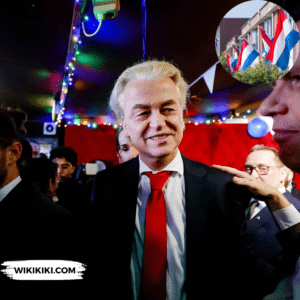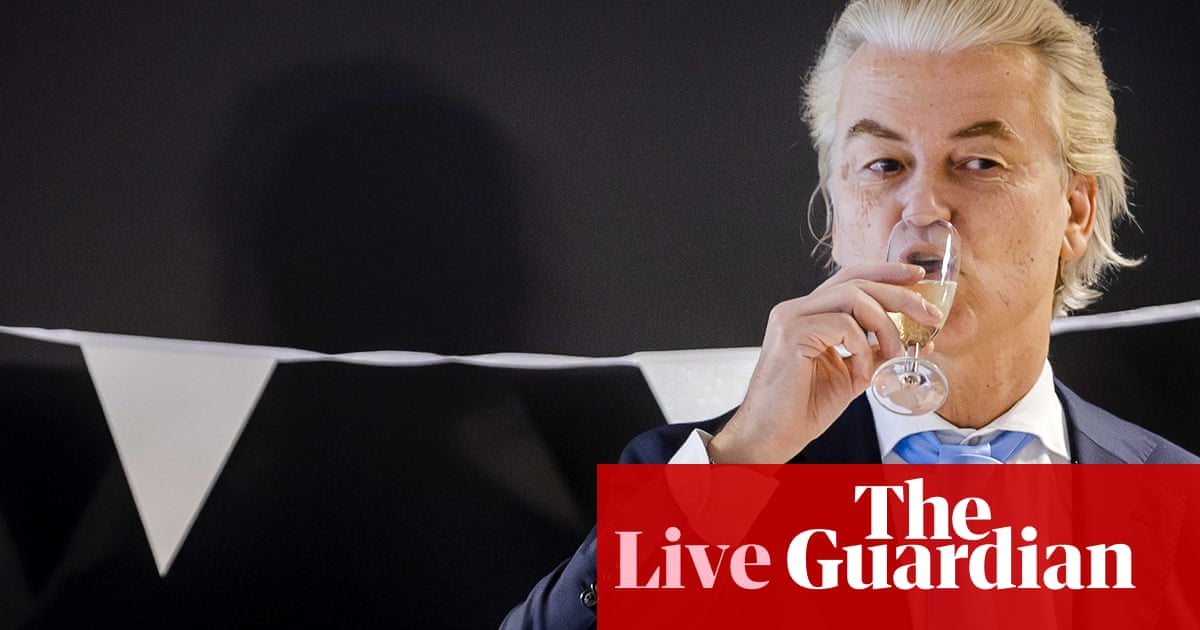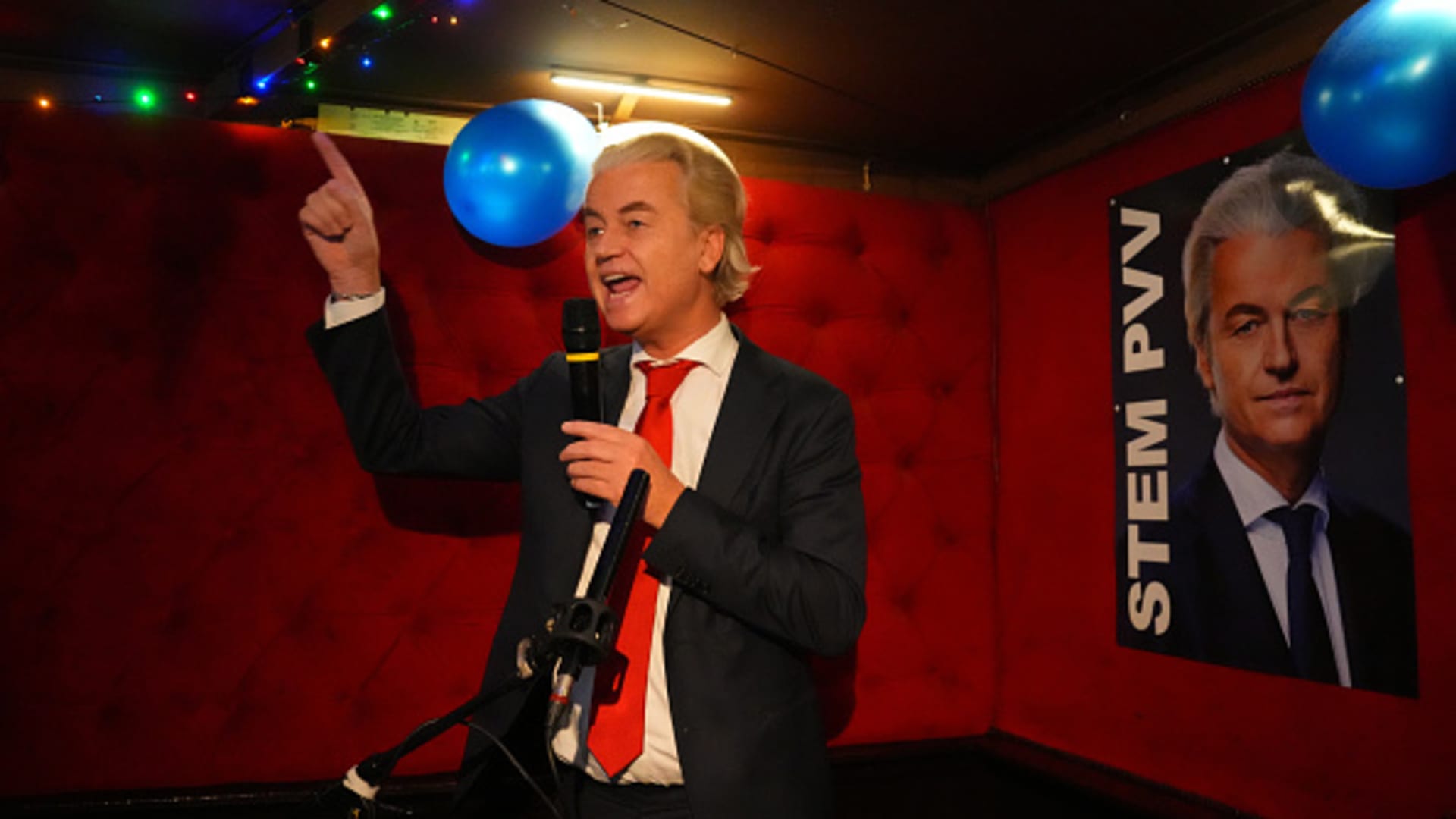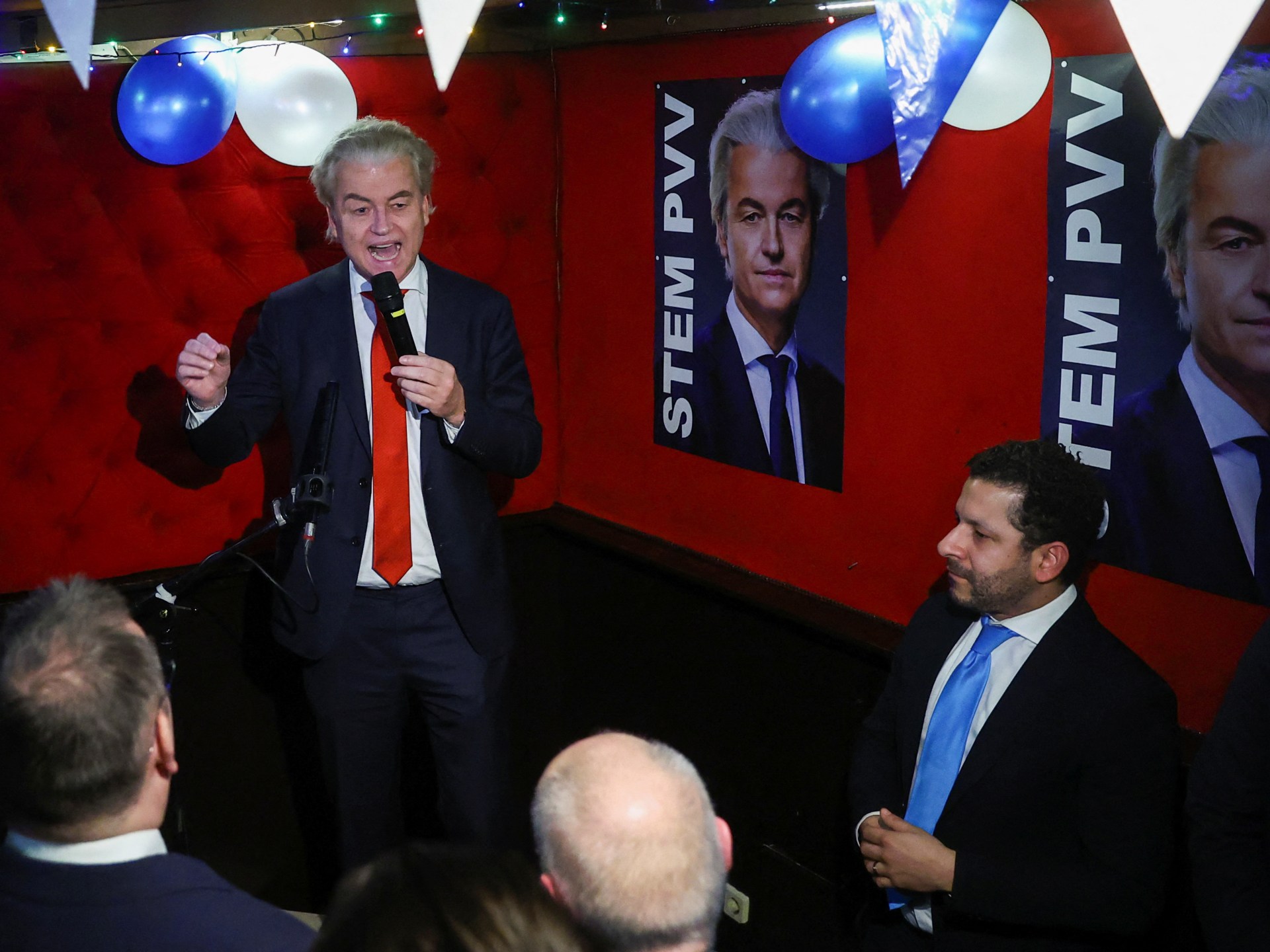Geert Wilders has emerged an a winner in the Dutch general election, securing 37 seats for his Freedom Party (PVV) out of the 150-seat parliament. This outcome has not only shock the politics in the Netherlands but across Europe.

Also Read: Human Rights Watch Accuses China of Destroying Mosques
The far-right leader’s success is attributed to his ability to widespread frustration about migration, promising borders closed and temporarily setting aside his controversial pledge to ban the Quran.
After 25 years in parliament, Geert Wilders proclaimed, “The PVV can no longer be ignored. We will govern.”
However, to fulfill his promise to be a prime minister for everyone, Geert Wilders now faces the task of other parties to join him in a coalition.
The magic number is 76 seats, and while his victory is substantial, forming a coalition government might prove challenging given the nature of his far-right policies.
Before the election the three major parties ruled out participating in a Geert Wilders-led government due to his far-right stance.
However, the scale of his victory may force a reconsideration. The left-wing alliance, led by ex-EU commissioner Frans Timmermans, secured a second with 25 seats, but Timmermans made it clear that he would not engage in a coalition with Wilders.
The center-right liberal VVD, led by Dilan Yesilgöz, and the newly formed New Social Contract party, led by whistleblower Pieter Omtzigt, stand in third and fourth place, respectively.
Also Read: 170,000 People Protest in Madrid Against Catalan Amnesty Law
Both parties have congratulated Geert Wilders on his result, but uncertainties over whether they would be willing to collaborate with the far-right leader in a coalition.
Geert Wilders victory is not only for the Netherlands but also for Europe, as the country is one of the founding members of the European Union.
The far-right leader, often dubbed the Dutch Donald Trump, advocates for a Nexit referendum to leave the EU.
During his campaign Geert Wilders tempered his anti-Islam rhetoric, focusing on issues such as migration, the cost of living, and housing shortages.
The strategy appears to have resonated with voters, more than doubling his party’s representation in parliament.
The response to Geert Wilders victory has been mixed. Nationalist and far-right leaders across Europe, including Hungary’s Viktor Orban, Italy’s Matteo Salvini, and France’s Marine Le Pen, have praised his achievement.
This signals a shift towards a more nationalist and anti-EU sentiment in European politics. As Wilders sets his sights on forming a coalition government, he faces challenges in finding willing partners.
The VVD and the New Social Contract party have worries about collaborating with the far-right due to ideological differences. However, politics is known for unexpected turns, and may change as negotiations unfold.
Also Read: Far-right Populist Javier Milei Wins Argentina’s Presidential Election
Pieter Omtzigt initially reluctant to work with Geert Wilders, has expressed openness to talks, stating they are “available to turn this trust [of voters] into action.”
The coming days will likely see discussions and negotiations among the parties, each weighing the benefits of aligning with the far-right leader.
The Netherlands has seen as a beacon of tolerance, now faces a shift towards a more right-wing politics. The European Union are as a Dutch government led by Wilders could advocate for policies challenging the unity within the EU.
The developments in the Netherlands, especially regarding Geert Wilders stance on EU membership and his approach to issues such as immigration, Islamophobia, and national identity.
The outcome of coalition negotiations will determine the direction of Dutch politics. While Wilders celebrates his victory, the challenge lies in forming a coalition government.
The three other major parties had initially ruled out joining a Wilders-led government due to his far-right policies. However, the scale of his victory may force a reconsideration.
The left-wing alliance under Frans Timmermans has made it clear they won’t collaborate with Geert Wilders. The center-right liberal VVD and the new social contract party, led by Pieter Omtzigt, have expressed willingness to engage in talks.
Also Read: Liberia Election: George Weah Concedes to Joseph Boakai in Polls

/cloudfront-us-east-2.images.arcpublishing.com/reuters/WFGAJAXX5ROE7AEPC6MLHBHXOA.jpg)





















